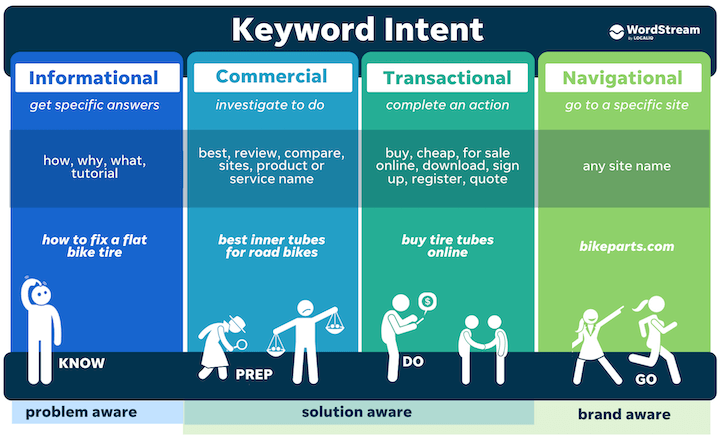Unlock the secrets of SEO mastery by discovering the optimal number of keywords to skyrocket your website’s visibility and success.

Image courtesy of via DALL-E 3
Table of Contents
Introduction to SEO
SEO, or Search Engine Optimization, is like a magical key that helps people find your website on the internet. Just imagine your website is a treasure chest full of amazing things, but no one knows where to find it. That’s where SEO comes in to help guide people to your website like a treasure map!
What is SEO?
SEO is all about making your website show up when someone searches for something on search engines like Google. It’s like putting up a bright sign that says, “Come over here! I have what you’re looking for!” This way, more people can discover your website and see all the cool stuff you have to offer.
Why Keywords Matter
Keywords are special words or phrases that people type into search engines when they’re looking for something. By using the right keywords on your website, you’re telling search engines, “Hey, when someone looks for these words, show them my website!” Keywords are like secret codes that help connect you with the people who are searching for what you have.
Finding the Right Keywords
When you want your website to show up in search engine results and attract more visitors, choosing the right keywords is essential. Keywords are the terms people type into search engines like Google to find what they’re looking for. By including the right keywords in your content, you can increase the chances of your website being discovered by your target audience.
Brainstorming Ideas
One way to find effective keywords is to put yourself in the shoes of your audience. Think about what words or phrases they might use when searching for information related to your website. Consider the main topics or themes of your content and brainstorm relevant keywords that accurately describe what you offer. Make a list of potential keywords to use in your content.
Using Online Tools
If you’re having trouble coming up with keywords on your own, there are online tools available to help you. Tools like Google Keyword Planner allow you to research and discover popular keywords related to your content. By using these tools, you can find out how often certain keywords are searched for and how competitive they are. This information can guide you in selecting the most effective keywords to include in your content.
How Many Keywords to Use
When it comes to optimizing your content for search engines, it’s important to understand the concept of keyword density. Keyword density refers to the number of times a particular keyword appears in your content compared to the total word count. To achieve the best SEO results, it’s recommended to maintain a healthy keyword density throughout your content.

Image courtesy of www.linkedin.com via Google Images
For an 11-year-old like you, think of keyword density as a recipe for your favorite dish. Just like you need the right balance of ingredients to make a delicious meal, your content also needs the right balance of keywords to make it appealing to search engines.
Avoiding Keyword Stuffing
While using keywords is essential for SEO, overloading your content with too many keywords can have a negative impact on your search engine rankings. This practice is known as keyword stuffing, and it can make your content appear spammy and difficult to read.
Imagine if you were telling a story but kept repeating the same word over and over again. It would become repetitive and boring, right? The same goes for using too many keywords in your content. It’s important to use keywords strategically and naturally to provide value to your readers while still optimizing your content for search engines.
Placing Your Keywords
Once you have selected the perfect keywords for your content, it’s essential to know where to place them strategically to maximize their effectiveness in boosting your website’s visibility. Here are some key areas where you should consider incorporating your chosen keywords:
In the Title
It’s crucial to include your primary keyword in the title of your content. This not only helps search engines understand the topic of your page but also improves the chances of your content being displayed to users searching for that specific keyword. Make sure the title is clear, relevant, and contains your main keyword naturally.
In the Body Text
Strategically placing your keywords throughout the body of your content is vital for SEO. Ensure that your keywords are seamlessly integrated into your paragraphs, headings, and subheadings. However, it’s important to avoid overusing them, as this can come across as unnatural and may be penalized by search engines.
Using Headers
Another effective way to optimize your content for search engines is by incorporating keywords into your headers and subheadings. This not only helps organize your content for readers but also signals to search engines the relevance of your keywords within the context of your page. Remember to use header tags (H1, H2, H3, etc.) to structure your content logically and include keywords where appropriate.
Measuring Success
After you have implemented your chosen keywords into your content, it’s essential to track how well they are performing. Analytics tools like Google Analytics can help you measure the success of your keywords. These tools provide valuable insights into how many people are visiting your website and how they are interacting with your content.

Image courtesy of medium.com via Google Images
Understanding Metrics
When using analytics tools to measure keyword performance, it’s crucial to understand key metrics such as page views and bounce rate. Page views indicate how many times a specific page on your website has been visited, giving you an idea of the popularity of your content. On the other hand, the bounce rate measures the percentage of visitors who navigate away from your site after viewing only one page. By monitoring these metrics, you can assess the effectiveness of your keywords and make informed decisions to optimize your content further.
Adapting Your Strategy
Developing a successful SEO strategy is not a one-time task. It requires constant monitoring, analysis, and adaptation to ensure your website stays relevant and visible to your target audience. Here are some tips on how to adapt and improve your keyword strategy over time:
Analyzing Results
One crucial step in adapting your keyword strategy is to analyze the results of your SEO efforts. Look at metrics like organic traffic, keyword ranking positions, and conversions to understand what is working and what needs improvement. By identifying trends and patterns in your data, you can make informed decisions about where to focus your efforts.
Making Improvements
Based on the insights gained from your analysis, it’s essential to make adjustments to your keyword strategy. This could involve tweaking existing keywords, targeting new keywords, or optimizing your content in response to changing search trends. By continuously refining your approach, you can ensure that your website remains competitive in search engine results pages.
SEO Best Practices
In order to make sure your website ranks well on search engines like Google and gets more visitors, it’s important to follow some best practices for SEO. Here are some tips to help you improve your website’s SEO:

Image courtesy of rockcontent.com via Google Images
Quality Over Quantity
When it comes to SEO, remember that quality content is key. It’s more important to have well-written, informative content that engages your readers than to stuff your content with too many keywords. Search engines like Google now prioritize high-quality content over keyword quantity, so focus on creating valuable content that people will want to read.
Staying Up-to-Date
SEO is constantly evolving, with search engine algorithms changing regularly. To stay ahead of the game, it’s crucial to keep up with the latest SEO trends and updates. By staying informed about changes in the SEO landscape, you can adjust your strategy accordingly to ensure your website remains optimized for search engines.
Tools to Help You
When it comes to SEO, keyword research is vital. Tools like SEMrush and Ahrefs can be your best friends in this process. They help you discover the most relevant keywords for your content and provide insights into search volume and competition levels. By using these tools, you can optimize your website to attract more visitors.
Content Optimization Tools
Content optimization tools like Yoast SEO are incredibly useful in ensuring that your content is well-structured for search engines. They provide suggestions on keyword placement, readability, and meta descriptions. With the help of these tools, you can improve the overall quality of your content and increase its visibility online.
Conclusion
In this article, we’ve learned all about SEO and the importance of using the right number of keywords to help your website get found on search engines. We discussed what SEO is and why keywords are essential for optimizing your content. We also explored how to find effective keywords, the significance of keyword density, and the negative effects of keyword stuffing. Additionally, we learned the importance of strategic keyword placement and how to measure the success of our keywords using analytics tools.

Image courtesy of rockcontent.com via Google Images
Final Thoughts
As you continue to delve into the world of SEO, remember that quality always trumps quantity when it comes to your content. Keep creating valuable and engaging posts for your audience, and stay updated with the latest SEO trends to adapt your strategy accordingly. Don’t be afraid to experiment with different keywords and monitor their performance to continuously improve your SEO efforts. With dedication and practice, you’ll become an SEO master in no time!
Want to turn these SEO insights into real results? Seorocket is an all-in-one AI SEO solution that uses the power of AI to analyze your competition and craft high-ranking content.
Seorocket offers a suite of powerful tools, including a Keyword Researcher to find the most profitable keywords, an AI Writer to generate unique and Google-friendly content, and an Automatic Publisher to schedule and publish your content directly to your website. Plus, you’ll get real-time performance tracking so you can see exactly what’s working and make adjustments as needed.
Stop just reading about SEO – take action with Seorocket and skyrocket your search rankings today. Sign up for a free trial and see the difference Seorocket can make for your website!
Frequently Asked Questions (FAQs)
What If I Use Too Few Keywords?
If you use too few keywords in your content, search engines may have trouble understanding what your webpage is about. This can result in your website not showing up in search results when people look for information related to your topic. It’s important to use enough relevant keywords to help search engines match your content with the right audience.
Can I Change My Keywords Later?
Yes, you can definitely update and change your keywords in existing content. As you learn more about what your audience is searching for, you may find better keywords that can improve your search engine ranking. It’s a good practice to revisit your content periodically and make adjustments to keywords to keep up with current trends and search behaviors.
What If I Can’t Think of Any Keywords?
If you’re having trouble coming up with keywords, try thinking about what words someone might use to search for the information you’re providing. Put yourself in the shoes of someone looking for content like yours and brainstorm terms they might type into a search engine. You can also use online tools like Google Keyword Planner to get ideas and suggestions for relevant keywords.







